Gardens in Cape Town
The project phase in Cape Town started slowly, as we had to work out a schedule that would suit not only all the participants, but also the three organisations we were working with. We divided the three months into three-week work periods for each organisation.
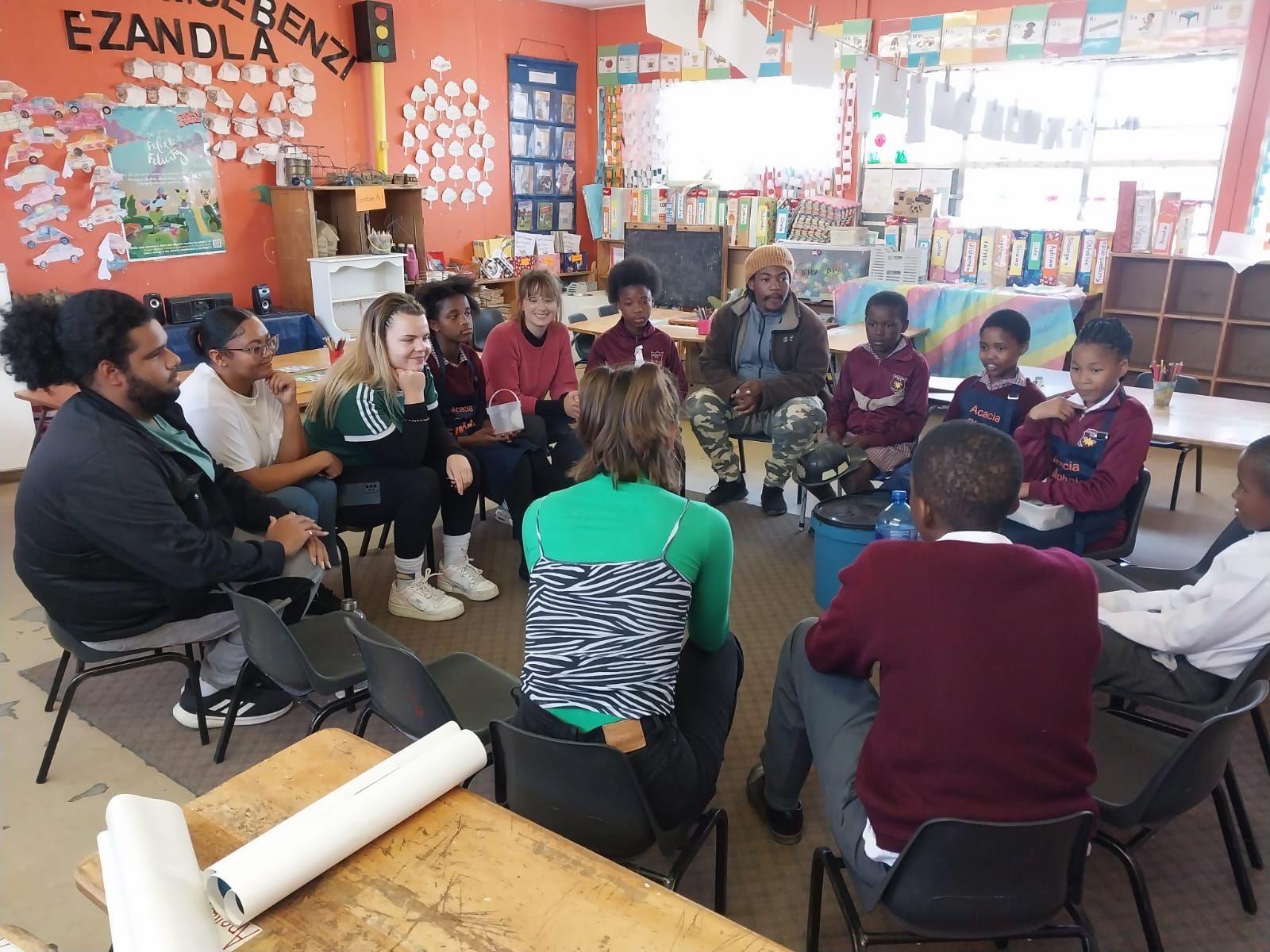
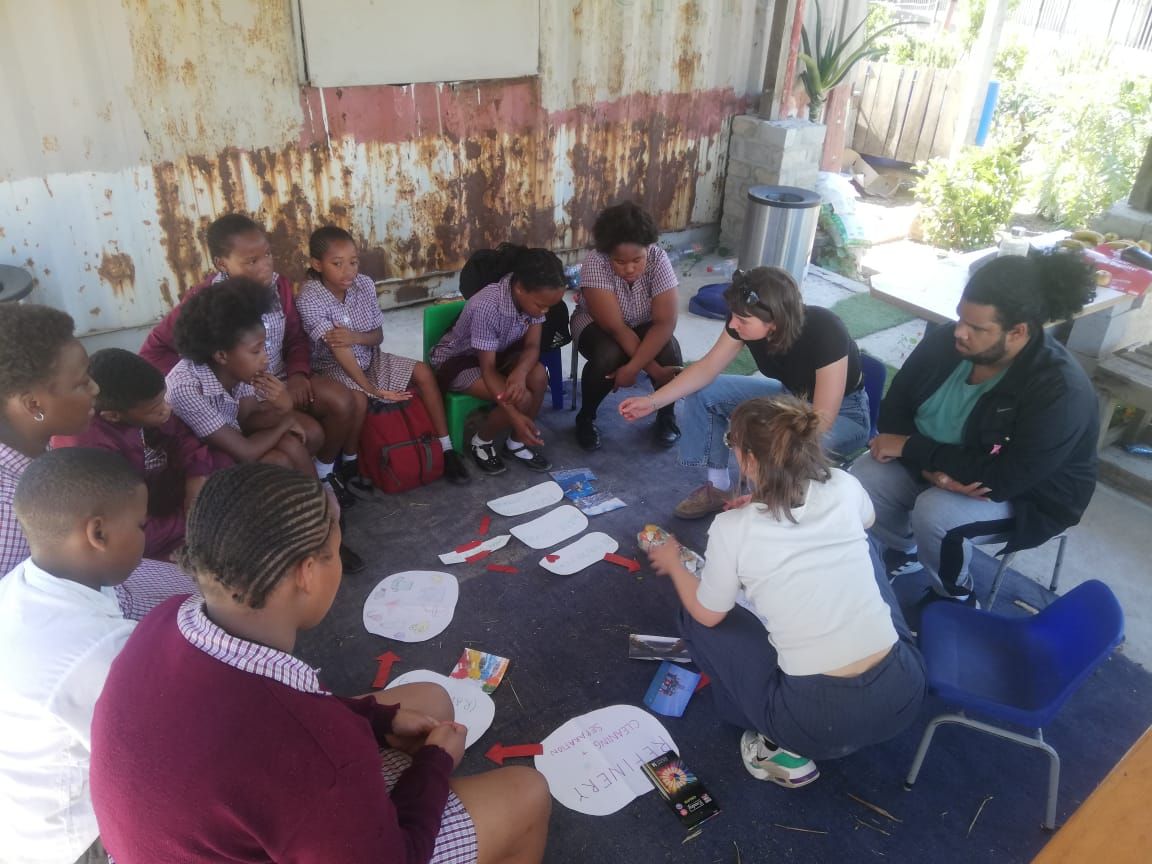
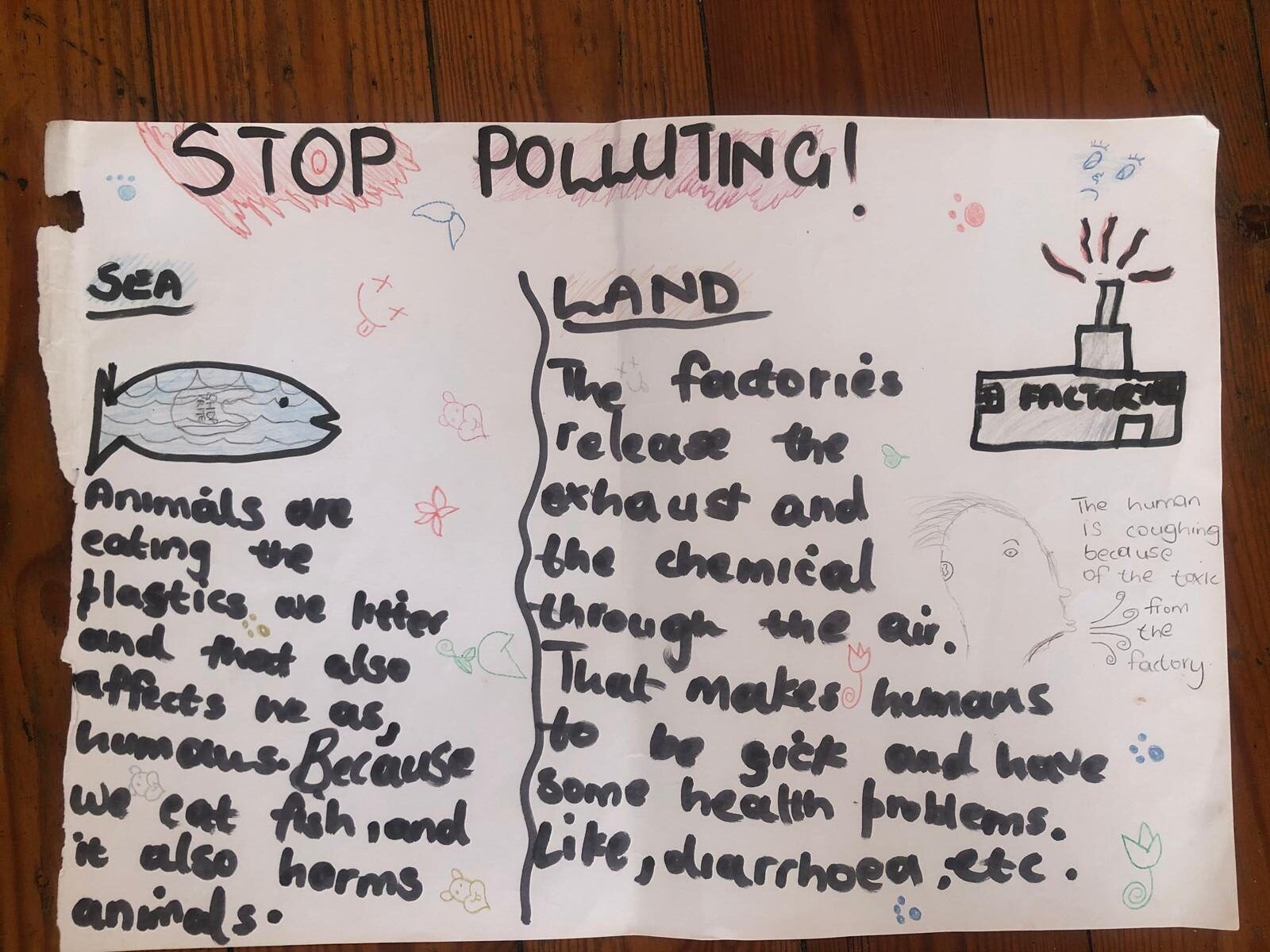
Mkhanyiseli Public Primary School
Starting in Nyanga, a disadvantaged area of Cape Town, we collaborated with GUFFI (Gugulethu Urban Food Forest Initiative). During these weeks we worked at Mkhanyiseli Public Primary School in an eco-club that was an after-school elective. Together with the children we raised awareness of more sustainable consumption and educated them about plastic pollution and its resource extraction. As a final activity, we worked with the children to build a bench for shelter in the school garden using eco-bricks (plastic bottles filled with plastic pieces that we collected on campus) and a clay straw component.

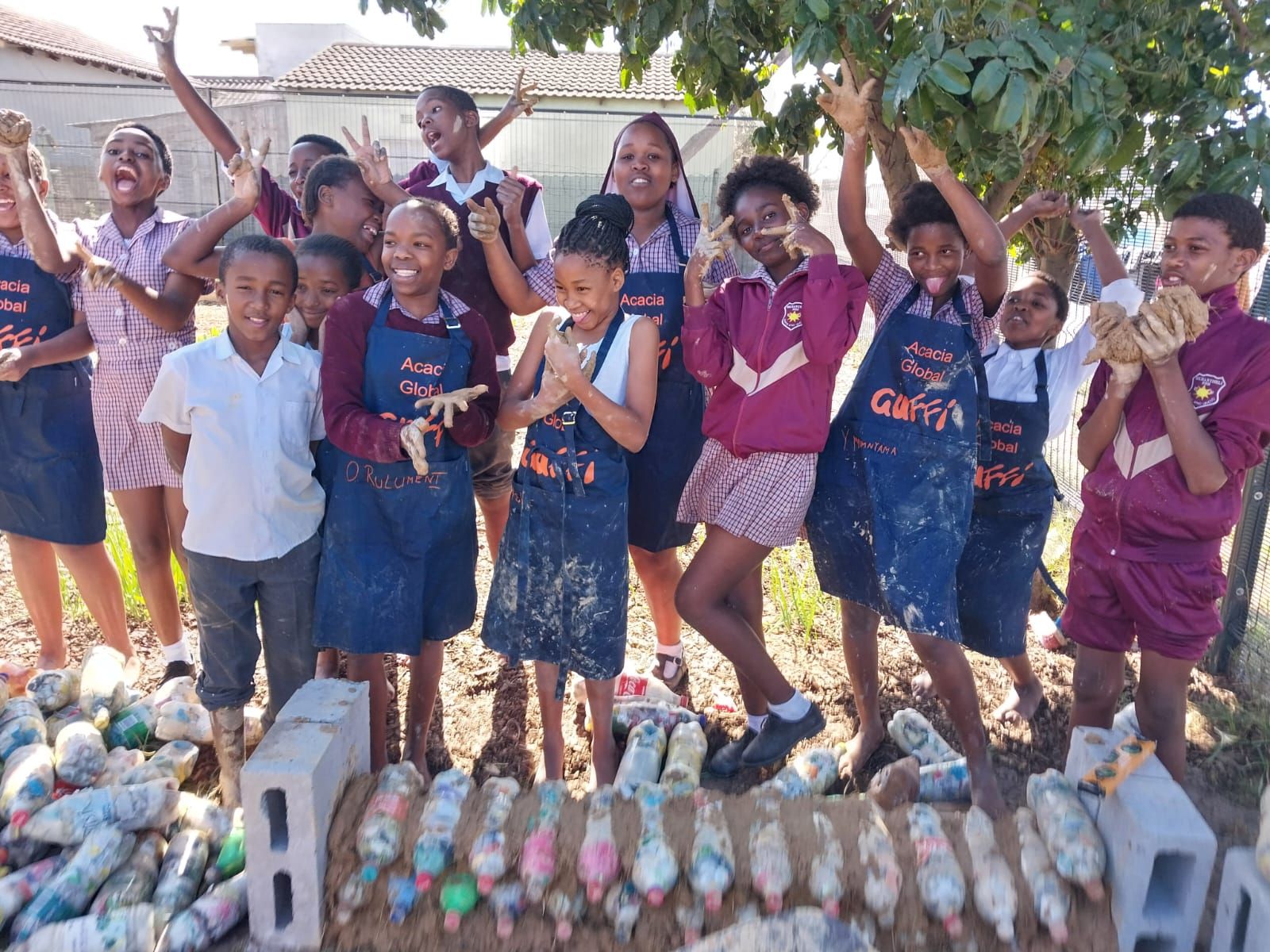

Dryden Primary School
The second project in Cape Town was organised by Saltriver’s Neighbourhood Gardens initiative and again focused on a school site. Mainly without the children, we created a peace and shelter garden in a corner of the schoolyard that had previously been used as a rubbish dump. With a lot of hard work we created a beautiful garden with indigenous plants from the Cape called Renosterveld vegetation, which is part of the Fynbos family that only grows in the Western Cape of South Africa. For the final planting event, we invited a Fynbos expert to explain the beneficial properties of the plants to the children, who took on the leadership and responsibility of maintaining the newly created garden. After the successful intervention at Dryden Primary School in Saltriver, we helped to build beds in a nearby garden, which is one of the gardens supported by the organisation. It was a great experience to immerse ourselves in the local community and learn about their struggles and hopes for their neighbourhood.
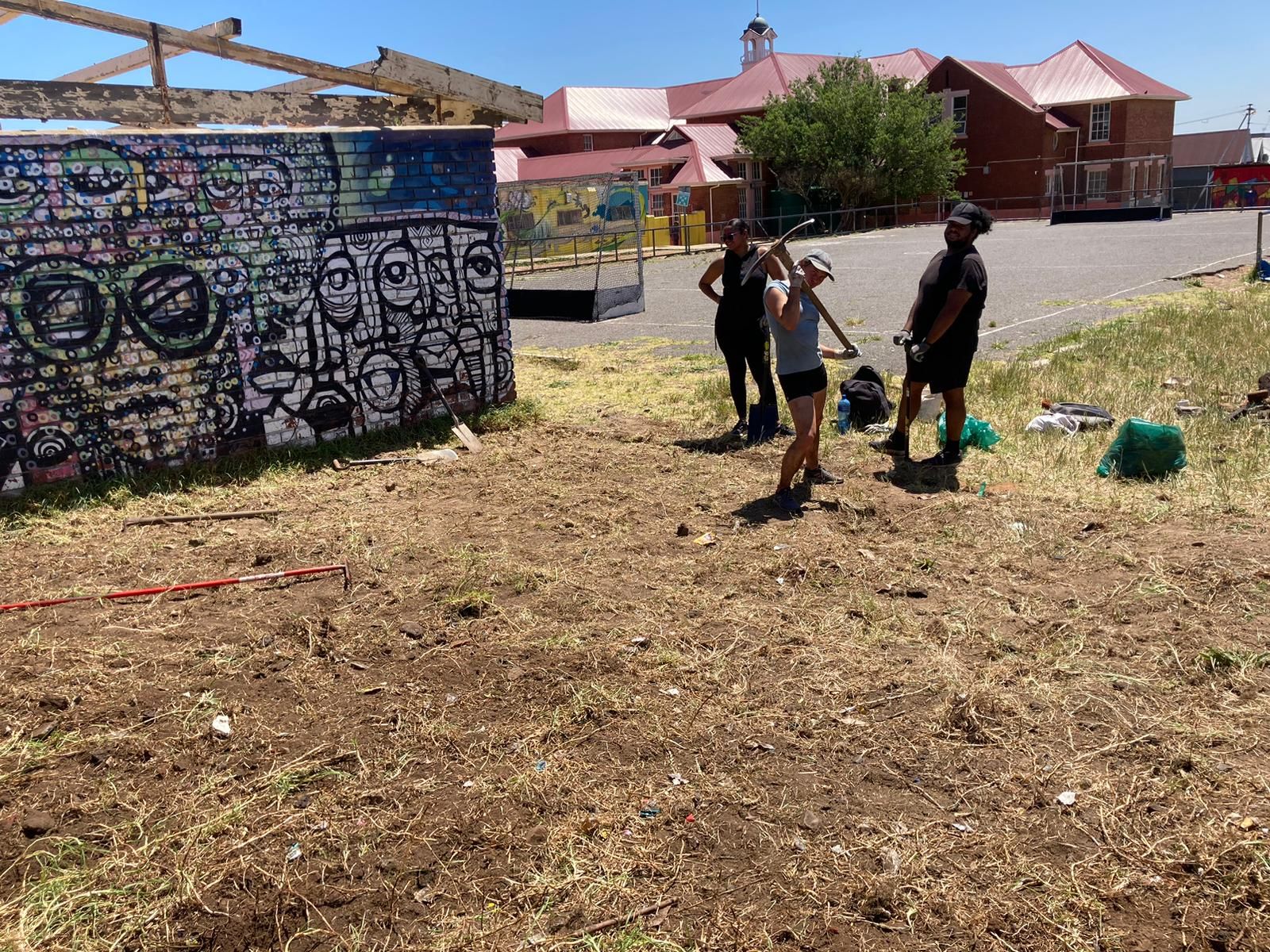

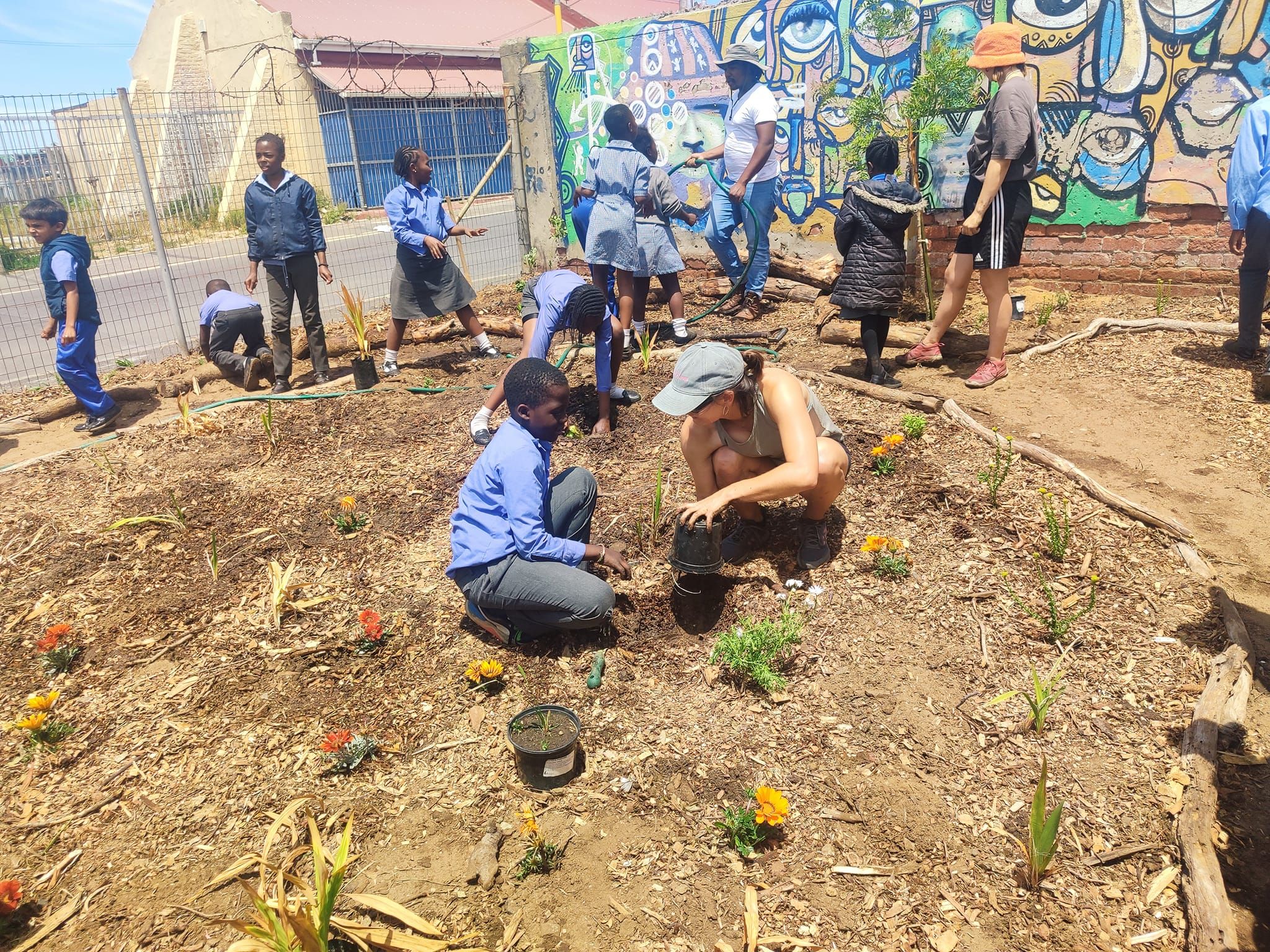
Calvinist Protestant Church
The final project took place in Strandfontein and was run by CWA (Community Women Action), an organisation that promotes the economic empowerment of not only women but also marginalised and stigmatised individuals. We worked on the site of the I.D. Morkel Recreation & Community Centre of the Calvinist Protestant Church, which was forced by the City of Cape Town to take action to keep the property. The site is located between two informal settlements, so the idea was to create a vegetable garden on the site to engage the local community and improve their food security through leadership. We were able to obtain funding for this project through the Aachen-Cape Town Partnership’s Climate Ticket. This programme supports gardens in Cape Town to make a difference in terms of sustainability and biodiversity. Thanks to the 14,000 Rand (about 700 Euro) we were able to buy materials, paint, soil and compost for our planting boxes. Despite our best efforts to engage with the local community, we were unable to organise a planting workshop. This was due to a lack of communication between several stakeholders. Unfortunately, the church didn’t tell us beforehand that they’d been having difficulties engaging with the local community for a long time. In the end, we finished our construction work but didn’t plant anything other than some seeds. The question of ongoing maintenance and leadership couldn’t be answered, so we decided to hand over the project without the final planting impact.



Despite the challenges, the time we spent together in Cape Town was wonderful, creating strong personal and professional bonds, leaving enough free time to explore some parts of this beautiful country, and actually making a difference, big or small.

